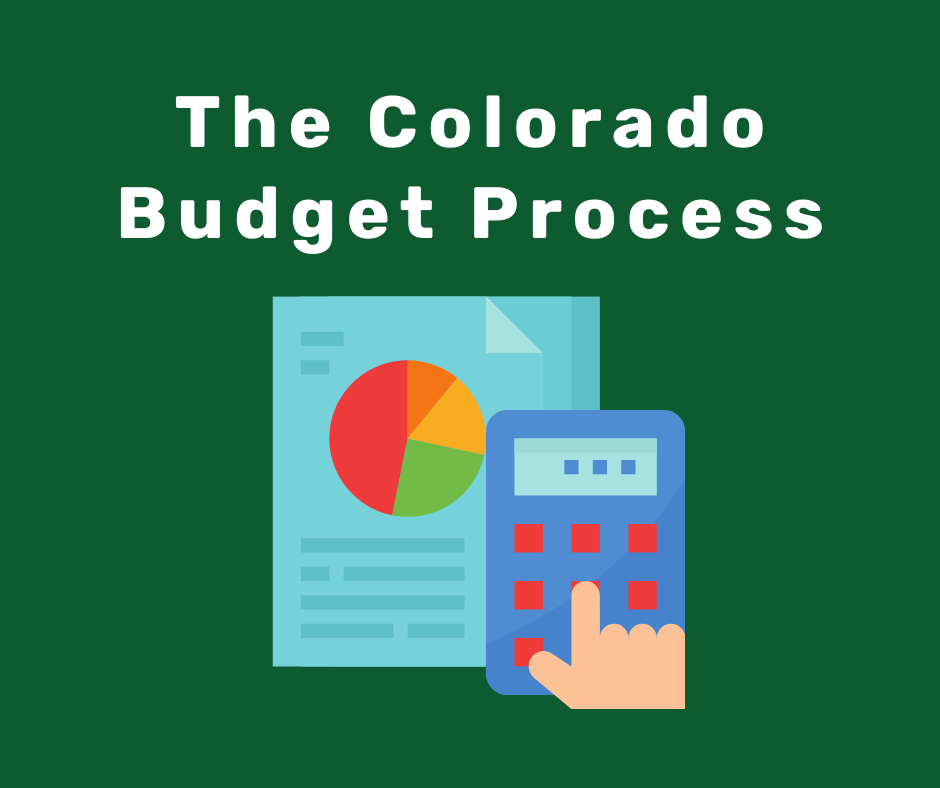Each year the Colorado Legislature creates a state budget for state services like education, roads, and programs supporting people with disabilities.
Colorado must maintain a balanced budget meaning the state cannot spend more than its revenue, unlike the Federal government. The process of creating the budget happens throughout the year, not just during the legislative session, and involves multiple branches of state government.
The Governor works with elected officials to prioritize the issues they feel are most pressing to Coloradoans. The Governor’s budget is typically submitted to the legislature and released to the public in early November. Using that budget, the heads of state agencies will submit annual budget requests to the legislature.
The Joint Budget Committee (JBC) uses their staff to brief the committee on each state agency’s issues. Then state agencies and their leaders come before the JBC for a public hearing. At the hearing, the JBC can ask the agency questions about their spending priorities and requests.
Supported by analysts and staff, the JBC drafts the “Long Bill” or the budget bill. The Long Bill is then introduced to one legislative chamber at a time to allow for debate and amendments. After it passes both chambers, it goes to the Governor to be signed and become law. The Governor may veto the entire budget or veto funding for specific line items (often called a line-item veto).
To learn more…
https://leg.colorado.gov/explorebudget/
https://coloradosun.com/2021/01/25/capitol-sunlight-colorado-budget-explained/
https://www.denverpost.com/2021/01/25/public-participation-colorado-state-budget/

